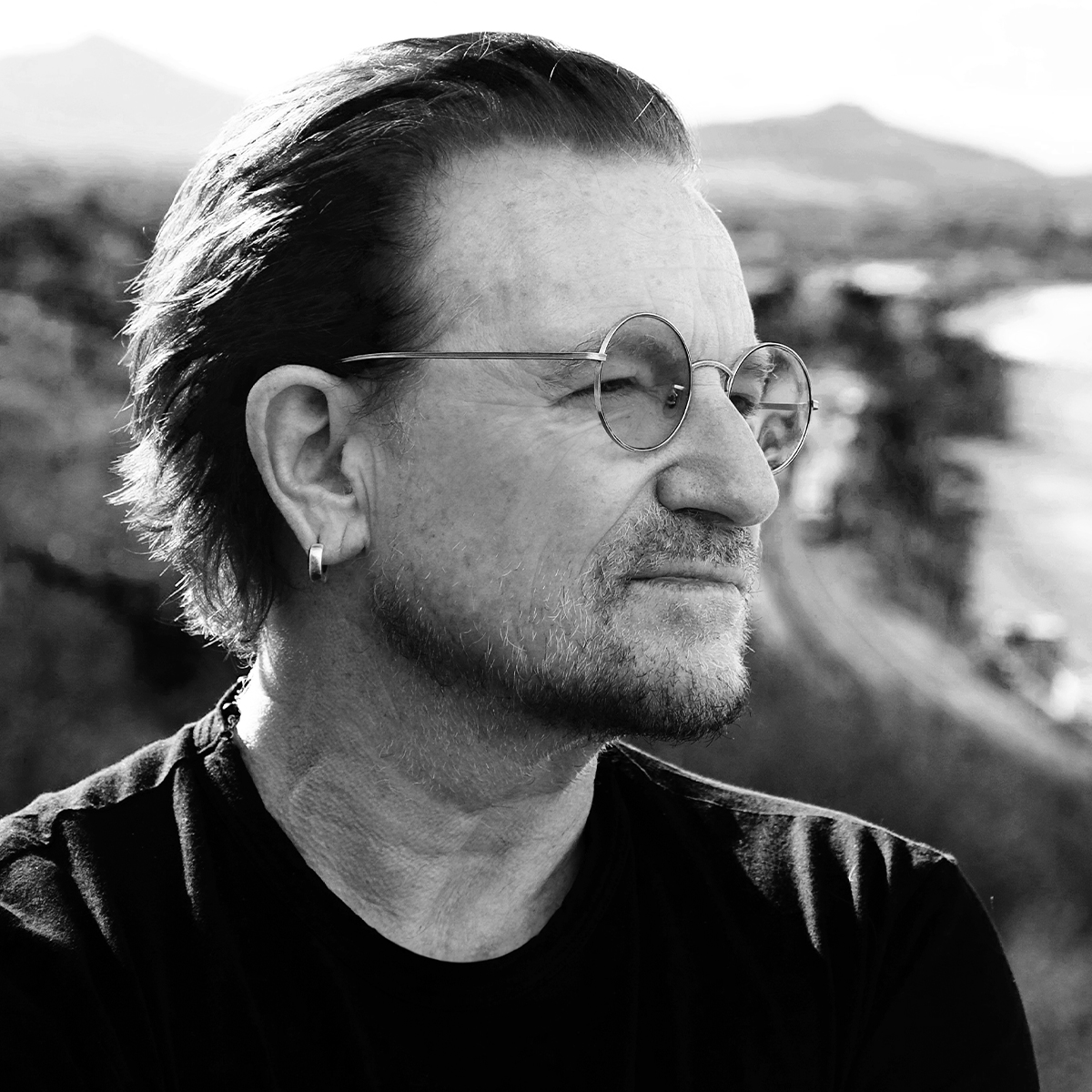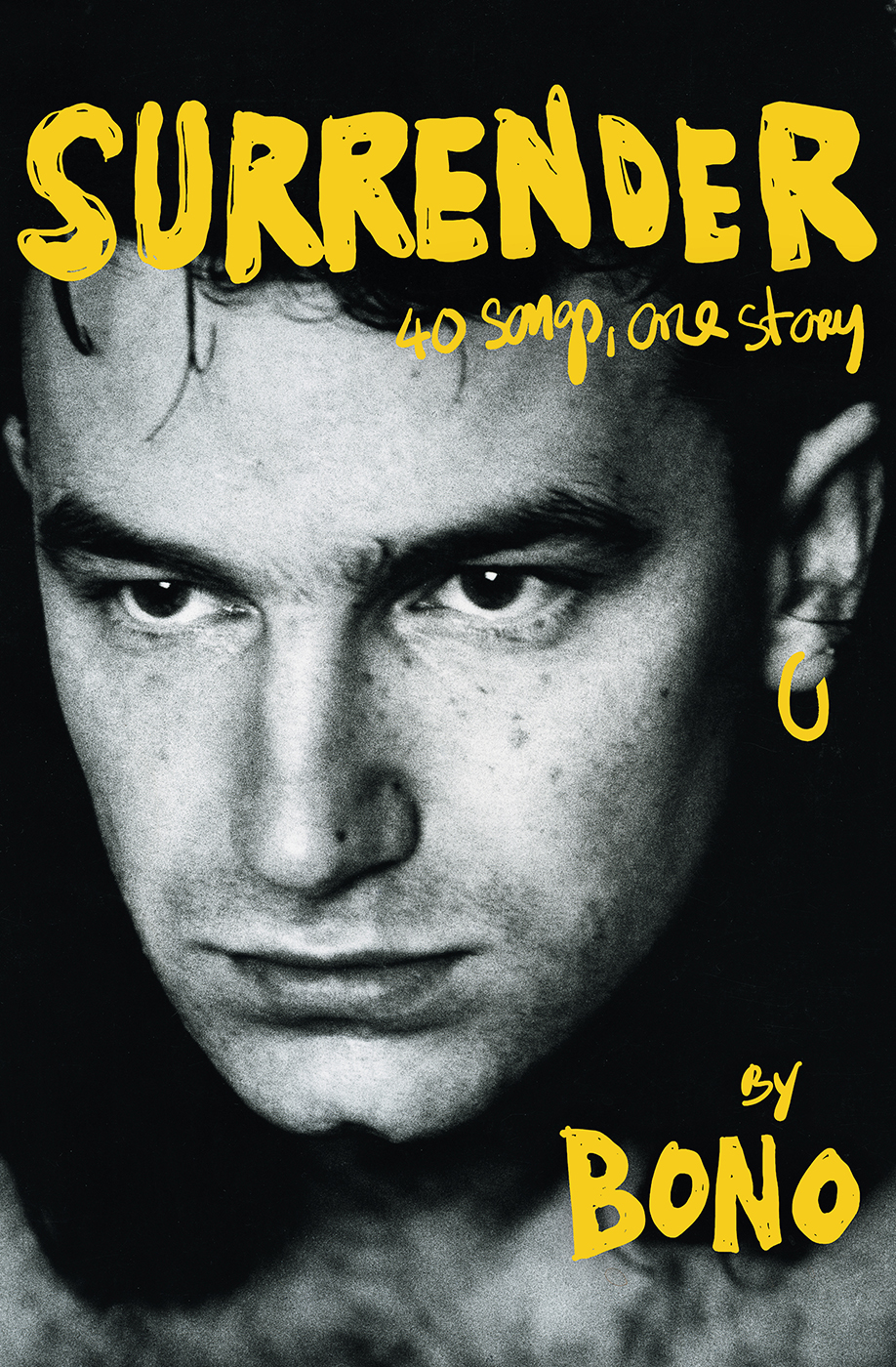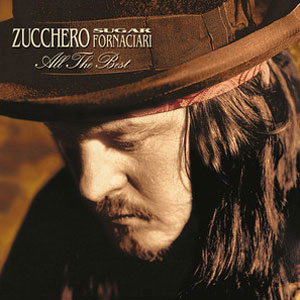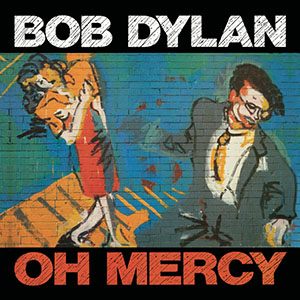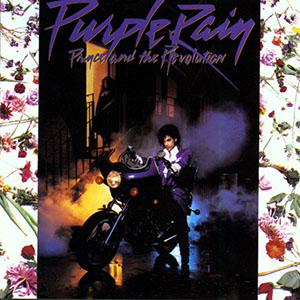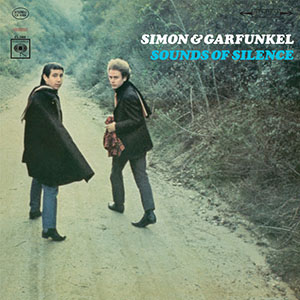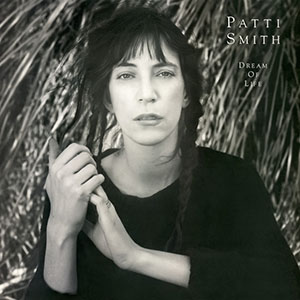Brené Brown: Hey everyone, I’m Brené Brown and this is Unlocking Us. We’re here with Part 2 of my conversation with Bono. I won’t even keep you waiting. It’s just that good. All right, before we get started, let me just say that this was a live event in front of 1,200 of our closest friends at the Paramount Theater, the historic, beautiful, amazing Paramount Theater in downtown Austin. The event was presented by Austin City Limits Festival’s Bonus Tracks, ACL Fest Bonus Tracks for short, and we talked about Bono’s new memoir, Surrender: 40 Songs, One Story. His new book, I just have to say, the memoir Surrender, it’s a love story. It’s a love story to Ali, his wife, to his family, to all of us who found all kinds of peace and challenges in the music and the lyrics. Let’s jump into the conversation. Okay, I’ve got to do this. This phrase, holy shit, paradox again, but okay. “How casually our destiny arrives.” You’re attending Mount Temple Comprehensive School. The story I make up about the school is, it is a place that absolutely engages the middle of the paradox. This is not a place where you have to have a lot of certainty. In 1976, you meet Larry, Adam, The Edge, and the love of your life, Ali Stewart, in the same week.
Audience member: What a great week.
Bono: Yeah, a great week. Great, great, great week.
BB: Okay, hold on. Let me find this passage.
B: You really have read the book well. It’s a lot of book.
BB: So, you’re at Larry’s house, and the sign up at school says, drummer seeks musicians to form band.
B: That’s it.
BB: Is that how it works?
B: That’s how it worked. And I’m very grateful to, I think, the 14-year-old Larry Mullen for posting that. And yeah, the school, Mount Temple Comprehensive is very hard to explain. It’s because you have to try and imagine this is, you know, the ’70s in Ireland. We really are something on the brink of civil war. And here’s this school where people are allowed to be themselves. I mean, you might say that the sort of non-denominational aspect is unique, but even just boys and girls, that was also quite unique and much more interesting.
BB: So I read.
B: Yes. You know, schools are really important. Teachers, the role that teachers play. Ali and I went back to Mount Temple Comprehensive recently. It was Saturday, we’re coming in from the airport. It was a sunny day, and we just went, the two of us, we hadn’t been there in over 20 years. And the current headmaster spotted us and said, “Do you want to come in and look around?” So he said, “I’ll just get the keys in the headmaster’s office.” And I went into the headmaster’s office, and he said, “You were probably in here a bit, were you?” And I said, “Yep.” And I told him about a particular headmaster that I had been called up in front of. And I had lost the run of myself as a young man and been involved in some aggression with a teacher, who was a bully. And anyway, the aggression could never be. I can’t, I’m ashamed of it. But I went at this fucker, anyway.
BB: I’m gathering that. Yeah.
B: And I was sent to the headmaster and I said, said his name. And I said, “And he’s doing this every day to people. It’s not me.” I said, “It’s just he’s really humiliating people and humiliating girls.” And the headmaster said to me, he said, “We know this. Okay. He’s a bad egg.” He said, “But this is not how you resolve this. Do you understand that?” And he said, “You let me do my job and you can stay in the school.” He said, “But when you leave here, you promise me that you will not approach solving these kinds of problems the way you did on that day?” And so, I walked out of the class and people are cheering. And I kept, I’d like to think of my part in the bargain and the geezer was asked to leave at the end of the thing. But I think about the headmaster, inspired man who was trying to deal with people and complicated people and different religions. He was in that space, that radical center that you are so interested in Brené Brown, and why I’m here.
BB: I am so interested in and I’m obsessed with this school. I even Googled it and tried to figure out like, yeah, I was into it.
B: Rock, rock, rock and roll high school.
[laughter]
BB: Okay. So you’re at Larry’s house and you’re in his kitchen, and everyone’s playing. You said it was “Metallic chaos…. The primal power of the tom-toms, the boot in the stomach of the kick drum, the snap and slap of the snare drum as it bounced off windows and walls. It was,” again, “a beautiful violence modulated by the shining gold and silver armor of the cymbals oddly filling out frequencies. This indoor thunder, I thought, will bring the whole house down.”
B: Yeah. Rock and roll man.
BB: And it really gets rock and roll-y. I’ll tell you why. Because then, you hear something that’s not in the kitchen and it’s girls giggling and laughing and screaming in the backyard.
B: Yeah. Yeah. Larry already had a fan club [laughter] and he gave us a lesson in rock star mystique. He turned the garden hose on them. I was like, “Wow. Gosh.” Because I was like, these girls, they’re interested.
[laughter]
BB: It’s an approach. Okay. So now, this is…
B: I know.
BB: I don’t know why I laughed at this line in the book. This is the first time you see Ali and you say, “I know I fancy bookish girls, girls who look as if they do their homework, who might develop a fine sheen of perspiration in the overheated library, girls who look as if they might do my homework.” [laughter] Sorry. I just had to ask.
[laughter]
B: Oh yeah. She’s been correcting my homework…
BB: I bet.
B: For quite a while. When I had to bring the book to Ali, of course, and ask, was she okay with it? Because we’re very private about our relationship.
BB: Yeah.
B: And whatever we’ve been through is not a soap opera outside of the songs, and they’re real opera. So I brought ’em to her and one thing she wanted taken out and the rest was spellings.
[laughter]
BB: Ali, Ali…
B: See, you got her right there. Still correcting my copy.
BB: This was one of the most beautiful things I’ve ever heard someone say about another person and this is you on Ali, and I found it in the very back, I think it’s on page 565 in a footnote. “Ali is inscrutable but not unknowable. Ali will let her soul be searched only if you reciprocate and if she’s ready for the long dive.”
B: That’s the only way over that drawbridge. Yeah, I mean, by the way, it’s not just me that feels like that, her children are the same, they’re all trying to get to know her, and we all follow her around. It is a love story, the book. I wrote it to try to explain myself to myself but I also wanted to explain to my family what I’d been doing with their life because they permissioned me to be away, they permissioned me to be not just an artist but an activist, and I felt they should have a record of the failures and accomplishments and in detail, because when you come back, we’re not sitting around the dinner table and I’m talking about being in don’t bring my work home with me that way. There are moments when I’ll sit, I used to sit and still do actually with our children, two boys and two girls, and Ali and ask their opinion on how I should behave in a certain situation or what would they think about their father taking this position or that position. But by and large, we’re having fun. So, I thought the book was important, and you know, one day, they’ll read it.
[laughter]
B: I think there’s been some sneaky looks into it from them already, but they don’t have to read it now, I’m not demanding that and it’ll be very embarrassing for them excruciating for them in some regards, although I did admit that our youngest son John, when I used to drop him to school would ask that I dropped him around the corner, and so he wouldn’t have to deal with any of that Bono shit.
BB: Yeah. I mean, I know you’re Bono, but I don’t think I knew what that meant until I got here. And we came in the back door, and there were just hundreds of people holding albums and we were in a black suburban and I think they thought that I was you, and so they were coming very close to the car, and I was like, “Oh, hell no.” Like, this is, I don’t do this. And then I rolled down the window and it’s like, I said, “It’s not… it’s just me.” And 80% of them were like, “Awww, man.” Except for like five women in their 40s. [laughter] Come on come on, let’s fucking go. They were like “We’re here for you, too.”
B: If I could be the Brené Brown of Dublin, I’d be very happy.
[laughter]
BB: I want to go to this on page 158. Do you want to read it?
B: Remind me of it again.
BB: Well, I have it all right here. It’s about you and Ali moving in together, and I can read it to you and you can comment or you can read it.
B: Whatever you like.
[laughter]
BB: Let me tell you this. I have the book, I have the Kindle, and I have the Audible. Do not miss the Audible. Yeah.
[applause]
B: Yeah, we went through a lot of trouble to try and create a more immersive experience than just a regular audiobook. So, I read it but there’s bits of songs in it and speeches. And if you’re talking about Mandela, you hear him in the background, and it’s quite a layered thing. A genius called Scott Sherratt did it over months, and he just didn’t sleep, he didn’t eat, he just did it and it’s pretty great.
BB: Fantastic. Yeah. And having the book, I go back and forth because the drawings and the photos. So I will tell you I do a full immersive thing here.
B: Well, this will not be that, but if you’d like I will…
BB: I would love.
B: Okay.
BB: Would y’all like to hear him read it? Yeah.
[applause]
B: Page 158.
BB: No way.
B: Okay. “Ali and I were moving in together and now we were beginning to move together. On paper, our marriage started that honeymoon week but in truth, it didn’t feel like that. We’d honored each other and made sacred vows but the biggest moments in life may not be those we notice at the time. No fireworks, no explosions, no falling even more deeply in love now that we had time together. We were the playwrights and the play. The actors and the critics, excited and nervous to begin our adventure together, no idea where we’d be in ten years, 20, 30. I raise you again, 40 years. We’ll eventually figure out what was going on in that moment rather than falling in love, we were climbing up toward it. We still are.”
[applause]
BB: “Rather than falling in love, we were climbing up toward it. We still are.” Man, there is, I hope the people in your life do get a chance to read this because it is a love letter to so many people.
B: Yeah, I was going to call it a we-moir instead of a memoir.
[laughter]
BB: I’m so glad you didn’t.
B: You know how singers tune up, me me me me me me. So, anything, I mean, even the author had gone off the subject of the book by the end, but I was reminded by the great editor, Sonny Mehta who passed away but is one of the reasons why I did the book with Knopf, one of the reasons why I did the book. And he said you will not reveal yourself in your descriptions of what’s going on in your life, in your mind, in your heart. He said, you most likely reveal yourself the most in your descriptions of other people. And I didn’t know that. And I have, these are extraordinary people that I’m in relationship with and the ones you just mentioned, I met the same week. But I went on to form another couple of bands as well. And so as an activist, you know, people like Bobby Shriver, we’ve co-founded RED. And ONE with Jamie Drummond, Lucy Matthew, who by the way, has played just the most incredible role in this book in making me do it, and she was so exacting, and we co-founded ONE together. So, these are people that I love actually. And so, yeah, I didn’t want to occupy myself with people that I loathed, so I just left them out of the book.
BB: Right on. Yeah.
B: Yeah, there’s another reason, there wouldn’t be a page to fill, I don’t loathe anyone, and I really don’t, I’m trying to think, there must be somebody I loathe. And I can’t, as I’m sitting here. Oh, yeah, I loathe Vladimir Putin.
[applause]
BB: Yeah.
B: And I’ll tell you, okay, now I’m going…
BB: Let’s go.
B: And I loathe that patriarchy in Iran right now, and I think about those women, those girls, and they just give me such hope and belief in the indomitable human spirit that these teenage girls will take these old grey geezers down.
BB: Let’s go.
B: I pray, I pray. We pray.
[applause]
B: Can we get an amen on that?
BB: Yeah. Amen.
B: Amen.
BB: It’s funny because Richard Rohr says, in his Center for Action and Contemplation. He says the most important word is the ‘and.’
B: Ah, right.
BB: Not the action or the contemplation but the and. God, your activism. You’ve done things and created change with collaborators that I don’t know that people thought was possible. And I wonder sometimes if it’s because you don’t allow yourself to loathe. You find, you say in the book, I think I’m quoting you correctly, “You find common ground by finding higher ground.”
B: That’s right. And in the ONE campaign, we say you don’t have to agree with someone on everything, if the one thing you agree on is important enough. And yeah, I’m not a natural for this line of work just so you know. I am more naturally combative. So, I learned this. I learned to put my hand in my mouth rather than my foot when representing these issues which were much bigger than me or anyone. So, I learned to be specific, to take on targets and go after them rather than just go after everything. But the act, you think about activists, the action of that girl, I’m not sure I remember her name, Asra Panahi. She was 16 and they took her out of school and killed her. And these actions, that’s activism. But actions are important, and I learned something years and years ago, which is that just to observe a problem requires a response. So, if you believe that, I’m not sure I do, but if you believe it, be very careful what you call out. Because now, you’re engaged. If you’ve got a problem that you spot, have you to respond to that? Is the question, and I don’t know the answer to it.
B: Our manager Paul McGuinness used to say to me, “Bono, the job of the artist is to describe the problem, not try and solve it. Can you get that into your head?” And I would say, “Well, yeah, but no.” [laughter] And I responded against this word, maybe this is related to my father, I don’t know, but I thought dream was not the word I wanted associated with my generation. I thought dream is the generation that came before us. Imagine John Lennon and I’m wearing his glasses. Oh, he brought me here in so many regards. But I felt what I loved about his activism was that he got involved. He went, he made a fool of himself and his missus sitting there, you know, the two virgins and bed-ins for peace. But somewhere in my head, there is hardwired action and contemplation. And contemplation in this case and action. And I just thought, if we know how to do it. I felt I knew how to get… This is a soccer analogy and I’m shites soccer player, but if the ball lands at your foot and you think you’ve got a way around the defense, and you know where the goalie is, and he’s standing, and you know where you might be able to get the ball if you’ve got the right team of people behind you…
BB: You’ve got to go.
B: How would you not go?
BB: You’ve got to go.
B: And it was a really simple idea, it sounds really crazy this week, but we said, “Oh gosh, we’re going to work with liberals and conservatives, with nuns and punk rockers, and soccer moms and teachers and nurses, and it started the end of just going into the zeros and on Drop the Debt.
BB: It’s huge.
B: Cancel the unpayable really, debts of the poorest countries in the world…
BB: To the richest.
B: To the richest. And it was a worthy cause, but it became a kind of a winnable battle because of the amount of unusual people, unusual bedfellows.
BB: Right.
B: And I remember Bill Clinton on, [imitating Clinton’s voice] “You got a really big tent here. Wow, you got the Pope, you got punk rockers,” and I thought…
[laughter]
[applause]
B: And I remember thinking, “Yeah, this is, wow, there’s nobody else done this.” Because we’re all very, I’m from the left, I’m right on, I’m from the Sunday school, I’m from the church, I’m from this, and it was so great about Jubilee 2000 who enlisted me on the Drop the Debt campaign, everybody was out on the streets. And you’re going to see this in America, you’re going to see a return to the radical center because the fringes…
BB: Wow, thank God.
[applause]
B: It’s okay, it’s okay to have people push the elastic limit, we need that, but actually there’s a W.B. Yeats poem, “The Second Coming,” where he goes, “Things fall apart, the center cannot hold, mere anarchy is loosed upon the world.” We need the center and we need to find the center, we need to listen more, very hard for me because I have so much to say, but we have to we… deep listening is something that I feel Father Rohr would be encouraging and listening to people not only that you don’t agree with, people you don’t like, people you don’t want to be in the room with, maybe what radical Christianity is and we’ve got to be very careful. I don’t want to be, I write about this in the book but I find myself helping God across the road like she’s a little old lady, [laughter] and come on God, I know exactly where you’re going, we’ve got to be careful of this, but if you are, if you come from a position where if you find something in this child born in shit and straw, if you believe there’s a force of love and logic behind the universe that would describe itself perhaps as a child born in shit and straw, the vulnerability of that and then you have to follow through on that and that means, I think it’s called pick up your cross or whatever it is, pick up your cross and follow me. I think that means going to places that you would not normally go, sitting with people that you would not normally sit with.
BB: That’s right.
B: And all of the faith traditions…
BB: Across all of them.
B: You find this. And in Islam you have this incredible respect for community and congregation, so it’s not unique just to the Judeo-Christian thing, but I’m leaning into religion at the moment, I will wake up and I’ll change me mind back, but that’s where I’m going at the moment.
BB: That’s great because this is my last page titled faith.
B: Okay. Oh wow.
BB: I mean, it’s like weird y’all really.
[music]
BB: Okay, your dad at the very end of his life, looked at you and said, he’s fighting cancer, dying, and says, “I’ve lost my faith, but don’t lose yours, it’s the most interesting thing about you.”
B: Yeah. Yeah, I was on tour with the band, we were playing in the UK and Ireland and so I could get home a lot, and my brother and I were looking after my father and we’re fortunate enough to be led into the room and to sleep beside him in these times, so my brother would be with him during the day and I’d come home and then take over and sleep beside him, which was a great intimacy between myself and my father at the end, but I’m kind of taking it too far occasionally and I was drawing him and it was beautiful because I could really study him and so I was drawing, I loved that, and then I thought he wanted me to read the psalms to him, probably not or maybe, one would have been enough and I’m like, “Wow, check this one out. This is really good; this is when David’s in real trouble himself. Now, did you know, Dad, that David was a musician, he played the harp, did you know that? He was kind of like a rock star.” “Yeah.” “Have you ever seen the statue of David; doesn’t he look like Elvis?” My dad’s like [pause] “And you know they don’t circumcise him. In the statue of David what’s that about?” [laughter] Dad is looking at me like eyes rolling, likely not to heaven. [laughter] And he’s like “Knock it off, will you?” And it’s very important people of faith to realize we can be really insufferable.
BB: Oh terrible, the worst. The worst.
B: But he did say to me, yeah, he said, “It’s the most interesting thing about you.” He lost his faith, I’m sad about that actually. Although as I do remind people, I love this thing, you know, we all sit around, “Do you believe in God?” “Oh, I don’t know, I’m working up to it.” And “No, I don’t.” We go ask the question. A much, surely, more interesting question is, Does God believe in us? And that’s the only question that matters.
BB: It’s the big one.
B: It’s like, “Oh you don’t believe in God, that’s fine, then that’s sorted that one out.” It is not the point, we have to accept, those of us who have faith, that it is preposterous for people who don’t have faith and so go easy on the mayo. [laughter] Is I think what my dad was saying to me.
BB: You talk about your faith here, you say, “It’s not just that some of the finest people I’ve known don’t subscribe to any particular faith tradition, it’s more that people who openly profess faith can be, how should I put this, such a pain in the ass.”
B: Arse.
BB: Arse, you said arse, yes.
B: Spell check.
BB: Spell check arse. Thank you, Ali. Caught that. You want people to live their love not profess it, really.
B: Yeah. Yeah.
[applause]
BB: Yeah. All right. So I’m going to hit you with this last thing, then we’re going to do very quick rapid-fire questions, are you ready?
B: Okay.
BB: We’re recording this for the Unlocking Us podcast, y’all.
[applause]
BB: Okay I’m getting ready to go Jesus just because I’m getting ready to go Richard Rohr.
B: Okay.
BB: Richard Rohr writes, “All of creation has a cruciform pattern of loss and renewal, death, and resurrection, letting go and becoming more. It is a coincidence of opposites, a collision of cross-purpose waiting for the resolution in us. We are all filled with contradictions needing to be reconciled. The price we pay for holding together these opposites is always some form of crucifixion. Jesus himself was crucified between a good thief and a bad thief, hanging between heaven and earth holding on to his humanity and his divinity, a male body with a female soul yet he rejected neither side of these forces but suffered them all and reconciled all things in himself.”
B: This is the quick-fire question?
[laughter]
BB: No.
[applause]
BB: Richard Rohr doesn’t quick fire. This is Richard Rohr. So, here’s my question for you.
B: But what was the question?
BB: Well, here’s the question based on the quote.
B: I will spend the rest of my life on the exegesis of that passage. And Jesus will not exit.
BB: Here’s my question. Is surrendering for you, the title of the book, about this reconciliation within yourself? Because when I think of surrender, I think of War, I think of the song from the War album, “If I want to live, I’ve got to die myself someday.” This is not a far leap from what Richard Rohr is talking about here.
B: Yes. It’s important I think to say that surrender does not always have to follow defeat.
BB: No. Yeah.
B: And for me who was born with my fists up, metaphorically speaking, and sometimes actually, it’s a word I don’t fully grasp and haven’t even fathomed the depths of. For me, it does not come easy, I’m not a natural for this to surrender to my maker, to surrender to my band mates, and to surrender to my wife, my partner, is a daily challenge to me. I’m not that person. This book I’ve written for, as in that sense it’s a prayer for where I need to be and I have to put down my fists and stop fighting with my father, stop fighting with myself, stop fighting with imaginary foes, and it’s a daily struggle for me because I like a row, I do.
BB: Is surrendering giving up or giving over to?
B: Oh much better, giving over, giving over, yeah. You’ve got to be careful about, you write well about guilt and shame, you write better than anyone about it. In Mount Temple Comprehensive, there was a very hipster English teacher, his name was Jack Heaslip, and he was kind of 60s liberal cool guy. And he was the house master as well and when if you broke a glass or kicked a ball through the window or whatever, you’d be brought in and he’d have to set the punishment, and he said what he would do is, he would ask the kids how would they think they should be punished, and he said 90% of the teenagers would choose way worse punishments than were on the books. And he said this is the human condition. He said, “It is kind of limitless guilt,” and I’ve taken his advice on that one. And I think we have to give up things, but yeah, I’m into people, at Lent…
BB: Yeah.
B: Take up something. Don’t give up…
BB: We take up stuff in our house. Yeah, we take up something joyful.
B: Yeah. Yeah.
BB: All right, rapid-fire. We only have time for a few, you ready?
B: I’ll try.
BB: Fill in the blank for me, vulnerability is?
B: An invitation to invincibility.
[applause]
BB: You’re called to be very brave, but your fear is real, you can taste it in the back of your throat. What is the very first thing you do?
B: Smirk. [laughter] You watch the Super Bowl?
BB: Yeah.
B: My ears are just about to go out, we’re going live, and people are slapping me on the back, walking through the crowds, and I am terrified, and all you will see is a smirk, yeah.
[applause]
BB: Favorite movie of all time?
B: Wings of Desire by Wim Wenders.
BB: Oh God. A concert that you’ll never forget?
B: The Clash, 1977 in Dublin. Changed my life.
BB: Favorite meal?
B: Oh. Fish and chips as prepared by the Italian restaurant Macari in Dublin. Macari’s fish and chips.
BB: Last thing, last TV show that you binged and loved?
B: Bad Sisters.
[applause]
BB: Oh my God. So good.
B: So good.
BB: So bad. But so good.
B: Yes.
BB: What’s one thing you’re deeply grateful for right now?
B: Eve Hewson.
BB: Oh. Oh, ready? He gave us a mixtape. Five songs you can’t live without. Are you ready?
B: It’s just today’s. But go on.
BB: This is what you gave us today or yesterday…
B: I couldn’t live without them today.
BB: The first one’s hard to pronounce so you may have to help me, “Miserore?”
B: “Miserere.”
BB: “Miserere.”
B: Luciano Pavarotti.
BB: By Luciano Pavarotti.
B: And Zucchero and I wrote it. And it’s a wild beast of a song. Andrea Bocelli also does a version of it, “Miserere.”
BB: “Miserere.”
B: Yeah. And it introduced me to this great man, really.
BB: “Most of the Time,” by Bob Dylan, “When Doves Cry,” by Prince, “Sounds of Silence,” by Simon & Garfunkel, and “People Have the Power,” by Patti Smith.
B: Yes.
BB: All right, in one sentence, what does this playlist say about you, Bono?
B: It’s a nice bunch of guys.
[laughter]
[applause]
BB: All right, before we get out of here, and I think that’s what the signal is. I want to thank everybody for being here. Yeah.
[applause]
BB: You guys are nuts, it sold out in three minutes with 4000 people in queue.
[applause]
BB: And I want to thank BookPeople for supplying all these books. Support your local independent bookstore, let’s go BookPeople.
[applause]
BB: I have a list. Okay, to Austin City Limits Festival Bonus Track, I literally texted them and said, “Bono’s got this new book, it kicks ass, we couldn’t do anything, could we?” And the text came back in 30 seconds, it said, “You’re on, let’s go.” And then Bono’s team was like, “You’re on, let’s go.”
B: You have a lot of fans on our team, and everyone knows Martin Rowe who after Jack Heaslip passed, he became our kind of pastor and he’s so much in my head and in my heart with this book, so it’s perfect that we would be with you, that’s what he would want.
[applause]
BB: Thank you for coming to Austin.
B: Austin, Texas.
BB: Austin, Texas.
B: Yes, man.
BB: And I have to say, in closing my big question when I was reading this book, 17-year-old Walkman War tape…
B: The War t-shirt.
BB: I have a War t-shirt on. Yes.
B: Wow!
BB: I was really into liberation theology at the time and I couldn’t figure out whether it was nature and nurture with U2. Was I attracted to the music and stuff because that was me or did y’all shape me, and what I realized from all the U2 concerts I’ve been to and there have been a lot, how about y’all, have y’all gone to U2 concerts?
[applause]
BB: I think we shaped each other. Yeah, I think, U2 is the band that doesn’t just drop stuff on us, it grows with us and changes with us, so thank you for being here and thank you for giving us room in your music to figure out who we are.
[applause]
B: Thank you so much.
[music]
BB: All right, just I hope y’all love this conversation like I love this conversation. If you are looking for links to the book, you can find them on brenebrown.com where we keep all of the podcast notes, just look under Unlocking Us. I really, really recommend the book. I mean, if you’re a U2 fan you won’t be able to put it down but even if you’re not, it’s incredible and the audio. I read the book and listened to the audio; both are incredible. Stay awkward, brave, and kind. Rock on. Unlocking Us is a Spotify original from Parcast, it’s hosted by me, Brené Brown. It’s produced by Max Cutler, Kristen Acevedo, Carleigh Madden, and Tristan McNeil. And by Weird Lucy productions. Sound design by Tristan McNeil and Andy Waits and music is by the amazing Carrie Rodriguez and the amazing Gina Chavez.
© 2022 Brené Brown Education and Research Group, LLC. All rights reserved.




